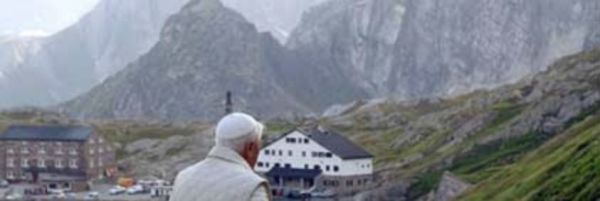The question raises several theories. Some refer to the fact of his greed for money; others hold to an explanation of a messianic order: Judas would have been disappointed at seeing that Jesus did not fit into his programme for the political-militaristic liberation of his own nation.
In fact, the Gospel texts insist on another aspect: John expressly says that "the devil had already put it into the heart of Judas Iscariot, Simon's son, to betray him" (Jn 13: 2). Analogously, Luke writes: "Then Satan entered into Judas called Iscariot, who was of the number of the twelve" (Lk 22: 3).
In this way, one moves beyond historical motivations and explanations based on the personal responsibility of Judas, who shamefully ceded to a temptation of the Evil One.
The betrayal of Judas remains, in any case, a mystery. Jesus treated him as a friend (cf. Mt 26: 50); however, in his invitations to follow him along the way of the beatitudes, he does not force his will or protect it from the temptations of Satan, respecting human freedom.
In effect, the possibilities to pervert the human heart are truly many. The only way to prevent it consists in not cultivating an individualistic, autonomous vision of things, but on the contrary, by putting oneself always on the side of Jesus, assuming his point of view. We must daily seek to build full communion with him.
Let us remember that Peter also wanted to oppose him and what awaited him at Jerusalem, but he received a very strong reproval: "You are not on the side of God, but of men" (Mk 8: 33)!
After his fall Peter repented and found pardon and grace. Judas also repented, but his repentance degenerated into desperation and thus became self-destructive.
For us it is an invitation to always remember what St Benedict says at the end of the fundamental Chapter Five of his "Rule": "Never despair of God's mercy". In fact, God "is greater than our hearts", as St John says (I Jn 3: 20).
Let us remember two things. The first: Jesus respects our freedom. The second: Jesus awaits our openness to repentance and conversion; he is rich in mercy and forgiveness.
Besides, when we think of the negative role Judas played we must consider it according to the lofty ways in which God leads events. His betrayal led to the death of Jesus, who transformed this tremendous torment into a space of salvific love by consigning himself to the Father (cf. Gal 2: 20; Eph 5: 2, 25).
The word "to betray" is the version of a Greek word that means "to consign". Sometimes the subject is even God in person: it was he who for love "consigned" Jesus for all of us (Rm 8: 32). In his mysterious salvific plan, God assumes Judas' inexcusable gesture as the occasion for the total gift of the Son for the redemption of the world.
[Pope Benedict, General Audience 18 October 2006]












